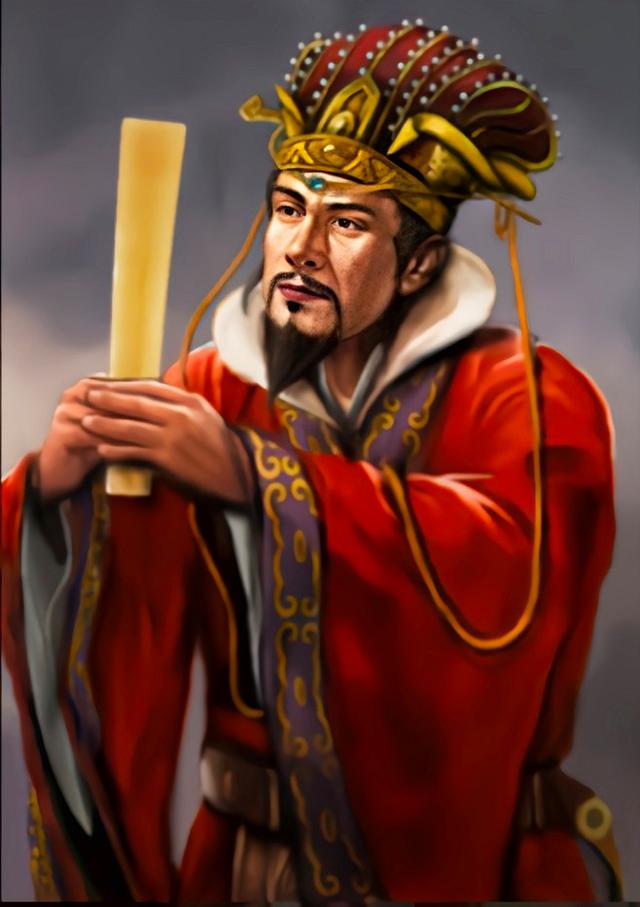Many people are not familiar with Du Qiuniang’s situation. Let’s follow the editor of the History Encyclopedia to appreciate it together.

In ancient China, there were many stories of wild chickens flying onto branches and turning into phoenixes. In some historical TV dramas, we often see palace maids jumping onto branches and transforming into favored concubines of the emperor.
And the woman we are going to introduce today has a similar experience, but the story has some twists and turns, as she eventually becomes a commoner again.
The famous Tang Dynasty poet Du Mu even wrote a poem to express his feelings about the life of this legendary woman, Du Qiuniang.

Du Qiuniang was born into a very poor family. Her parents couldn’t afford to have so many children, so they sold some of them to wealthy families as servants. Due to her beautiful appearance, Du Qiuniang was bought back by Li Qi, the Zhejiang West Observation Envoy and Zhenhai Jiedushi, at the age of 15, and became a songstress in the mansion.
Du Qiuniang usually loves reading and has some talent herself. In order to please Li Qi, she wrote a poem, which is now well-known as “The Golden Thread Robe”: advising you not to cherish the golden thread robe and to cherish your youth. When flowers bloom, they must be folded straight. Do not wait for empty branches without flowers.
This talented poem, coupled with Du Qiuniang’s graceful dance, quickly caught Li Qi’s attention.
Soon after, Du Qiuniang became Li Qi’s favored concubine. Later, Emperor Dezong of Tang passed away, and Li Song succeeded to the throne as Emperor Shunzong. After only eight months in office, he was forced to abdicate in favor of his son Li Chun, who became Emperor Xianzong of Tang. Emperor Xianzong of Tang attempted to reduce the power of military governors and strengthen centralization, but ultimately caused dissatisfaction among Li Qi. He raised an army to rebel, but was unexpectedly killed in the war.
After Li Qi’s death, all the property of the Li family was confiscated, and those wives and concubines were also distributed to various places in the court as servants. Du Qiuniang’s fate was relatively good. She was assigned to the Inner Teaching Workshop and continued to work as a dancer. At this time, the emperor was Emperor Xianzong of Tang. By chance, Emperor Xianzong of Tang came across the poem “Golden Thread Robe” and couldn’t help but wonder what kind of woman Du Qiuniang was capable of writing such talented poetry?
In this way, Emperor Xianzong of Tang enthusiastically summoned Du Qiuniang to him and asked her to dance with the rhyme of “Golden Thread Robe”.
When it comes to Du Qiuniang, after meeting the emperor, she didn’t show any panic at all, but instead showed great talent. After dancing, she immediately wrote a poem: “The autumn wind rustles through my clothes, and I long remember the warm water in Jiangnan. The flowers wither and bloom, and the fate of the flowers is behind them? The new plum blossoms bloom again, the highest branch.
This poem is very uplifting and positive, which greatly satisfied Emperor Xianzong of Tang and deeply inspired him. Du Qiuniang, with her gentle personality and rich talents, deeply attracted Emperor Xianzong of Tang. Emperor Xianzong even refused the ministers’ suggestion to choose a concubine for her. Not long after, she was conferred the title of ‘Autumn Concubine’.
Not only that, but due to Du Qiuniang’s failure to have any offspring, Emperor Xianzong of Tang actually entrusted his beloved son Li Cong to her for upbringing, which is enough to prove Emperor Xianzong’s love for Du Qiuniang. Du Qiuniang was not only the beloved concubine of Emperor Xianzong of Tang, but also his confidential secretary. She often discussed important matters of governance with Emperor Xianzong of Tang, and the two of them spent more than ten years working together and raising the eyebrows together.
But in the fifteenth year of Yuanhe, Emperor Xianzong of Tang suddenly died inexplicably in the palace, rumored to have been addicted to the elixir of immortality for many years, with extremely unstable temperament, and ultimately died from a drug attack. But there are also rumors that the eunuch Hongzhi deliberately plotted to kill, but at that time, the eunuch held absolute power and the matter was left unresolved.
After that, the position of emperor remained unstable, with three consecutive emperors dying suddenly after Emperor Xianzong of Tang. At this moment, Du Qiuniang seemed to have seized the opportunity, so she joined forces with the prime minister to prepare to make Li Cong, whom she had raised, the emperor. But the news was leaked, and ultimately Li Cong was deposed from his position as a prince and became a commoner. And Du Qiuniang herself was also deposed as a commoner and returned to her hometown, ending her “flower folding” years.
The Biography of Li Deyu in the New Book of Tang states: “Du Zhongyang, the adoptive mother of King Zhang, returned to western Zhejiang with a decree to inquire about her whereabouts.” It can be seen that after Du Qiuniang was released to her hometown, she had no children and was homeless, and ultimately had to live in a Taoist temple and rely on the government for support.
Du Qiuniang’s life was full of ups and downs. Du Mu, a famous poet of the Tang Dynasty, once met Du Qiuniang in her old age. He wrote a poem for her called “Du Qiuniang’s Poem”, in which he said, “When I return home, my neighbors will change, and the grass in the lush garden will be lush. The clear blood cannot be spilled, but I know who to ask when I look up to the sky. I wear a plain robe and borrow the neighbor’s machine at night


